Research
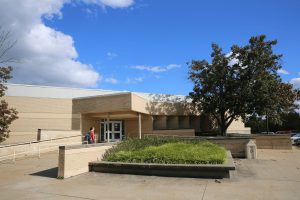
Nov. 2, 2021
Building Staying Power
Mobile meat processing training centers will address labor shortages within meat processing industry.
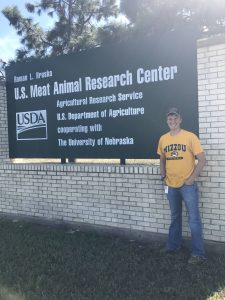
Oct. 26, 2021
Preparing for the Next Step
Zach Duncan's time in CAFNR helped equip him for graduate school.
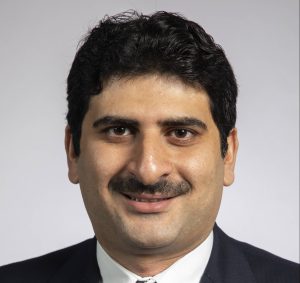
Oct. 19, 2021
Ahmed Balboula Receives Outstanding Investigator Award
Ahmed Balboula, assistant professor in animal sciences, is working to understand how chromosome segregation is regulated in female gametes (oocytes). During the early stages of pregnancy, chromosome mis-segregation can result in aneuploidy (abnormal number of chromosomes in a cell), the leading genetic cause of miscarriages and congenital abnormalities. His work has implications for both animal and human health. Balboula recently received R35 grant (Outstanding Investigator Award) through the National Institute of General Medicine (NIGMS, NIH) totaling $1.9 million for a five-year period. Funding is for a project titled Mechanisms Underpinning Meiotic Spindle Formation and Behavior. Balboula is a reproductive…

Oct. 1, 2021
CAFNR Celebrates Hispanic Heritage Month
Eduardo Segarra – MS, ’82 Agricultural Economics Agricultural Economist, Professor Segarra worked with his family’s construction business in Monterrey, Mexico, while earning a BS in economics. He then learned English in four months so he could come to Mizzou for a MS in ag econ. For the last 30+ years, he has been a professor of ag econ at Texas Tech University. During his time at TTU, Segarra served as the first Latino department chair, as well as the first Latino president of Southern Agricultural Economics Association (SAEA) and the Agricultural & Applied Economics Association (AAEA) Foundation. Mily Treviño Executive…
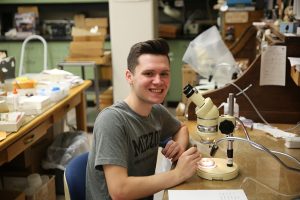
Sep. 28, 2021
Taking a Chance
As a freshman, Mason Ward took a chance and applied to the Freshman Research in Plants (FRIPS) Program with the thought that he would give research a try. Ward wasn’t sure if research would be a major part of his collegiate career, but figured by pushing himself he would certainly learn something new. Now, three years later, Ward’s extraordinary research portfolio has earned him two undergraduate research awards from the Entomological Society of America (ESA). Ward earned the Undergraduate Student Achievement in Entomology award from the Plant-Insect Ecosystem (P-IE) section of the ESA, as well as the…
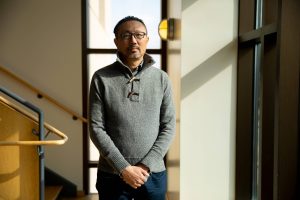
Aug. 31, 2021
Solving Problems Through Research
As an alum of the University of Missouri (MU), Chung-Ho Lin has worked for his alma mater his entire career in the College of Agriculture, Food and Natural Resources (CAFNR) in the School of Natural Resources. In that time, he’s become known as a problem solver of sorts, when it comes to a wide variety of research questions. Lin, who is a research associate professor in forestry, is also the lead scientist in charge of bioremediation and natural products research programs at the Center for Agroforestry. Bioremediation is a process used to treat contaminated media like water, soil and other…
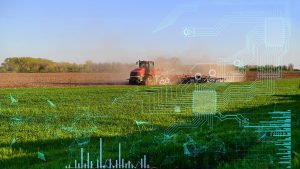
Aug. 30, 2021
MU Plays Crucial Role in New NSF Artificial Intelligence Institute
The U.S. National Science Foundation (NSF) has announced the establishment of the AI Institute for Resilient Agriculture (AIIRA), one of 11 new NSF National Artificial Intelligence Research Institutes that will work to advance AI technologies and their associated benefits to society. The AIIRA will be led by Iowa State University (ISU) and feature collaboration across eight institutions, including the University of Missouri. While the 11 AI Institutes will cover a wide range of AI technology and applications, the AIIRA will focus on a simulation technology that can create “digital twins” of real-world crops and farms, an approach that would provide…
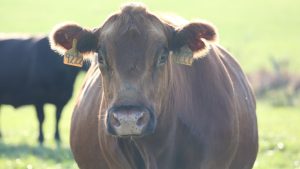
Aug. 30, 2021
Cattle Losing Adaptations to Environmental Stressors, MU Researchers Find
As a fourth-generation cattle farmer, Jared Decker knows that cattle suffer from health and productivity issues when they are taken from one environment–which the herd has spent generations adapting to–to a place with a different climate, a different elevation or even different grass. But as a researcher at the University of Missouri, Decker also sees an opportunity to use science to solve this problem, both to improve the welfare of cattle and to plug a leak in a nearly $50 billion industry in the U.S. “When I joined MU in 2013, I moved cattle from a family farm in New…
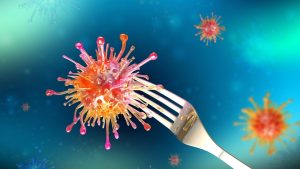
Aug. 30, 2021
Unconscious Biases can Drive Foodborne Illness Outbreaks, MU Researchers Find
In the midst of a pandemic that has claimed more than 2 million lives worldwide and disrupted nearly every facet of society since it appeared more than a year ago, understanding the factors that create and facilitate disease outbreaks is more important than ever. Now, researchers at the University of Missouri have determined that cognitive biases — patterns of errors in thinking that affect judgments and behaviors, often unconsciously — can help create and worsen foodborne disease outbreaks. Harvey James believes studying unconscious biases can help researchers learn how outbreaks are born. “Unethical behavior isn’t always…
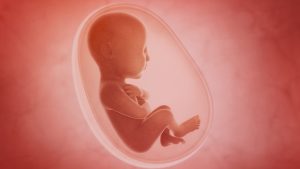
Aug. 30, 2021
Breakthrough Could Lead to Early Detection of Pregnancy Complications
Constantine Simintiras and his colleagues in Thomas Spencer’s lab have found a non-invasive way to study fluid produced in the uterus during pregnancy. The quest to create safer, more successful pregnancies is one of the top goals of modern science. While pregnancy is better understood today than ever before, with improvements in technology helping to lower the risk of negative outcomes, there is much researchers still don’t know about a vital part of the pregnancy process: uterine fluid. Secreted by glands in the uterus during pregnancy, uterine fluid is believed to play an important role in…